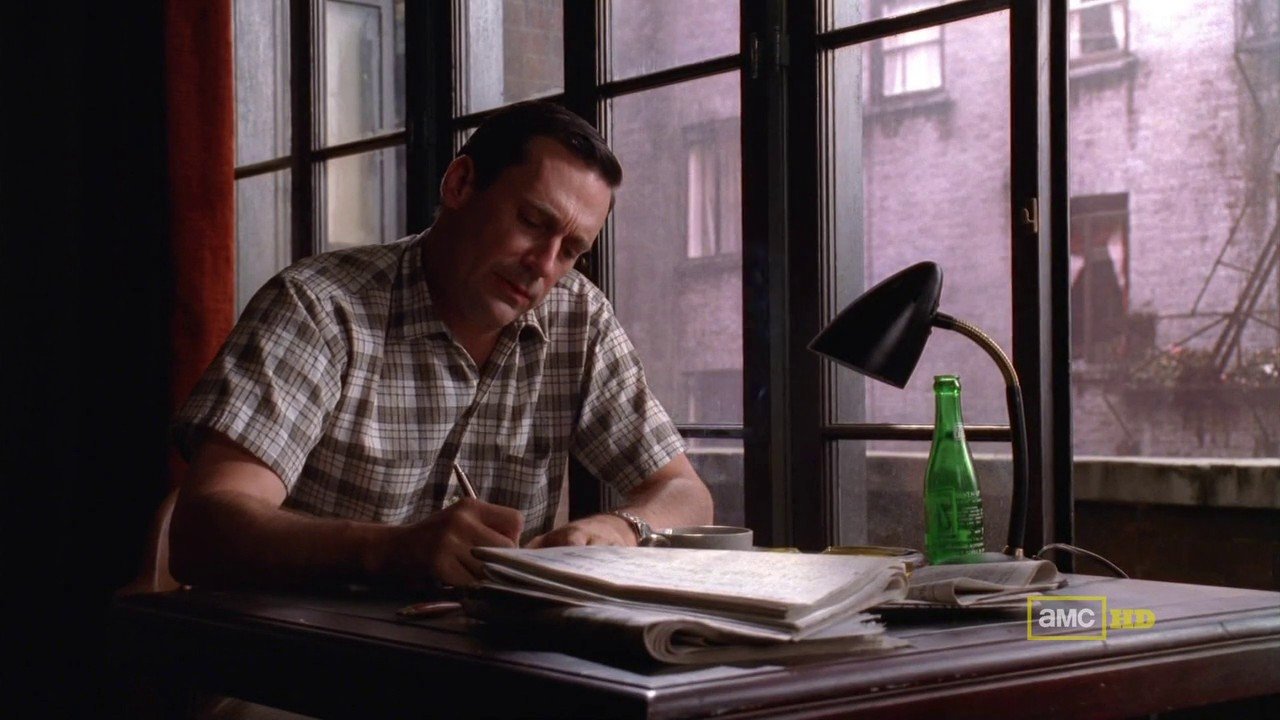
In AMC’s award-winning TV series “Mad Men,” the lead character Don Draper — a man with deep internal conflicts and significant character flaws — starts to write down his thoughts and reflections about people and events in his daily life. During the brief period he was doing this, he stopped drinking and quickly became a better man. Unfortunately for the character (but fortunately for the plotline), the journal-writing and commitment to change lasted only a short time, but it’s still a powerful point applicable to everyone.
For years, I have recommended that people keep a journal. It’s one of the hardest things to motivate somebody to do, and yet once done, one of the most effective. An online columnist at www.ririanproject.com sums up the concept: “…Instead of thinking of a journal as a diary … in which you merely relate the day’s events, think of it as a container for self-reflection, self-expression and self-exploration. The act of writing something down always makes it more real and more concrete than merely thinking it.”
It all comes down to living the examined life. We live in an age of acronyms (LOL, OMG, etc.), superficial sound bites, half-baked ideas and not fully thought-out emotions. It’s the mental equivalent of fast-food. Everybody is capable of thinking deeper and most everybody has a need to think more self-reflectively. In fact, a lot of the symptoms of so-called attention deficit disorder, depression, anxiety and substance abuse are a reflection of not living an examined life.
So why not give it a try? Consider these sample questions:
“What emotions do I feel right now?”
“What percentage of today (0 to 100) did I experience each of the following emotions: Anger, sadness, irritation, joy, contentment, anxiety, disappointment, frustration?”
“Which people or situations stand out most about today?”
“What attitudes did I exhibit within myself (or towards others)? Was I pessimistic, cautious, gloomy, upbeat, energetic, lethargic? Which of these was I aware of that nobody else was aware of?”
“What issues did I resolve, even partially, today?”
“What attitude do I wish to project tomorrow?”
“Did I feel like a victim today? Could I have made different choices in order to feel less like that?”
Of course, these are only examples to get you started. Use your own experiences to generate your personal approach to a journal.
Regular readers of this column know that I encourage introspection as a way to solve just about any emotional conflict. To introspect means to live the examined life; to apply focus, thought and awareness to the emotions you’re experiencing. By looking at your emotions objectively, you can correct contradictions in your thinking before they lead to more serious problems. Contradictions are sneaky! They can hide out in your emotions, and if you’re not in the habit of taking a close look at how you feel, the result can be faulty decision-making and the resulting turmoil. Keeping a regular journal can give you that insight. By writing down your feelings and then examining them objectively, you can determine if you are expecting contradictory things.
I can hear the responses now: “I don’t have the time. It’s not worth the effort.” (People say the same thing about therapy, counseling and self-reflection in general.) Well, at least that’s honest. But is it true? Think about it from this angle: Do you really have the time for unexplained depression, unexpressed anger and frustration? Are you OK with feeling like a victim and whining about how you “had a bad day?” These things take up your valuable time as they slowly and insidiously sap your energy and sense of well-being. It just seems to me that life’s too short to put up with all that unnecessary clutter.
If I’ve learned anything in my 25+ years of counseling people, it’s that most emotional difficulties can be best treated through prevention. Leading an examined life, keeping tabs on your feelings with a journal, and looking objectively at it will surely help to prevent problems that can make your life less enjoyable than it should be. So why not start now?
Be sure to “friend” Dr. Hurd on Facebook. Search under “Michael Hurd” (Rehoboth Beach DE). Get up-to-the-minute postings, recommended articles and links, and engage in back-and-forth discussion with Dr. Hurd on topics of interest. Also follow Dr. Hurd on Twitter at @MichaelJHurd1
